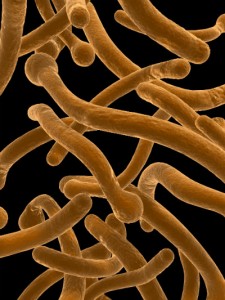 African-American women who grew up in abusive homes have a 20% higher risk of having asthma as an adult.
African-American women who grew up in abusive homes have a 20% higher risk of having asthma as an adult.
Constant stress uses up cortisol that would otherwise be used to control inflammation that can set off an asthma attack. Read more…
SOURCE: Science Daily

 A Paleo diet, restful sleep, a supplement regime and a low-stress life can improve mitochondrial function in patients with chronic fatigue.
A Paleo diet, restful sleep, a supplement regime and a low-stress life can improve mitochondrial function in patients with chronic fatigue.  Here’s a great article about the connection between depression and inflammation. “Depression (and anxiety) are associated with multiple markers of inflammation in the body, though a source for inflammation is often not apparent.
Here’s a great article about the connection between depression and inflammation. “Depression (and anxiety) are associated with multiple markers of inflammation in the body, though a source for inflammation is often not apparent.

